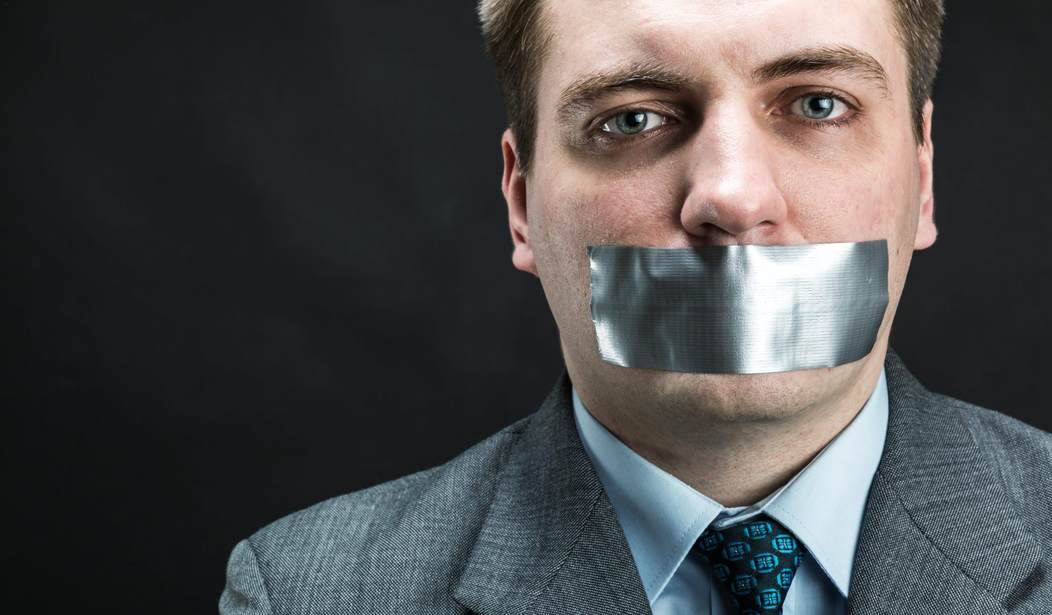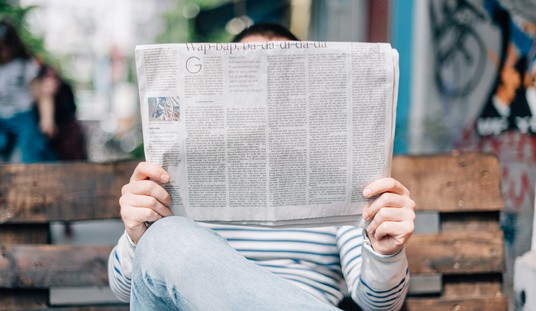A committee of the American Bar Association is reportedly considering new rules which would restrict speech and employment according to the same politically correct rules now being applied on draconian college campuses. A pair of rules first reported by The Washington Post‘s Eugene Volokh show how the ideology of anti-“discrimination” is infecting the last refuge of Americans seeking justice in our legal system.
Speech codes which seek to penalize “harassment” end up chilling free speech — and often along political lines. The proposed rule emphasized that it “does not prohibit conduct undertaken to promote diversity,” thus embedding a political slant into the very rule itself. Here is a selection of the proposed rule, with Volokh’s emphasis included:
It is professional misconduct for a lawyer to:… (g) harass or discriminate on the basis of race, sex, religion, national origin, ethnicity, disability, age, sexual orientation, gender identity, marital status or socioeconomic status in conduct related to the practice of law. This Rule does not limit the ability of a lawyer to accept, decline, or withdraw from a representation in accordance with Rule 1.16….
[Discrimination and harassment] includes harmful verbal or physical conduct that manifests bias or prejudice towards others because of their membership or perceived membership in one or more of the groups listed in paragraph (g)….
Conduct related to the practice of law includes representing clients; interacting with witnesses, coworkers, court personnel, lawyers and others while engaged in the practice of law; operating or managing a law firm or law practice; and participating in bar association, business or social activities in connection with the practice of law. Paragraph (g) does not prohibit conduct undertaken to promote diversity.
The proposed rule has caveats explaining the scope of discrimination and harassment and another section exempting “legitimate advocacy that is material and relevant to factual or legal issues or arguments in a representation.” Nevertheless, the idea that harassment includes “harmful verbal conduct” in “social activities in connection with the process of law” would necessarily lead to a restriction of speech in many situations where it would otherwise be quite acceptable.
As Volokh pointed out, if lawyers put on a Continuing Legal Education event including debate on sensitive issues like same-sex marriage, immigration from Muslim countries, or on whether or not people who identify as transgender should be able to use the restroom that does not match their biological sex, even arguing for one particular side of the debate could be interpreted as “harassment.”
The bar association could prosecute a lawyer who uses arguments — for the sake of education — critical of gays, Muslims, or transgender people. Such arguments would “manifest bias or prejudice” to certain groups, and some people would view them as “harmful.” Since these statements were made “in connection with the process of law,” they would be subject to such censure.
Next Page: This “harassment” expends to groups and not just individuals, and might even prohibit good hiring decisions.
Furthermore, while these arguments would not be about one person in particular, the anti-harassment case law which would be used to determine unacceptable statements has expanded the meaning of “harassment” to include statements about a group generally.
Even off-hand comments at a social event with other lawyers would likely fall into these restricted categories. If, as Volokh suggested, a lawyer discusses Islam, evangelical Christianity, differences between the sexes, same-sex marriage, the cultural causes of poverty, and other such sensitive issues, he or she may offend another attendee. If that person brings a complaint, it would fall under the censure of the bar association.
“And, of course, the speech restrictions are overtly viewpoint-based: If you express pro-equality viewpoints, you’re fine; if you express the contrary viewpoints, you’re risking disciplinary action,” Volokh explained.
Proposed rules might also extend to discrimination on the basis of “socioeconomic status” when choosing partners, employees, or experts with whom to do business.
As Volokh explained, “socioeconomic status” is defined as “an individual’s status in society as determined by objective criteria such as education, income, and employment.” Many different kinds of actions would likely fall under this restriction, such as lawyers and firms choosing to work with well-credentialed experts or choosing to hire more educated people who went to high-“status” schools like the Ivy League. These decisions are entirely justifiable for business reasons, and should not be punished.
The ideology which pushes speech codes and anti-discrimination measures on college campuses should not be allowed to infect the legal system as well. If it does, there will be no refuge for those it deems worthy of “re-education.”









Join the conversation as a VIP Member